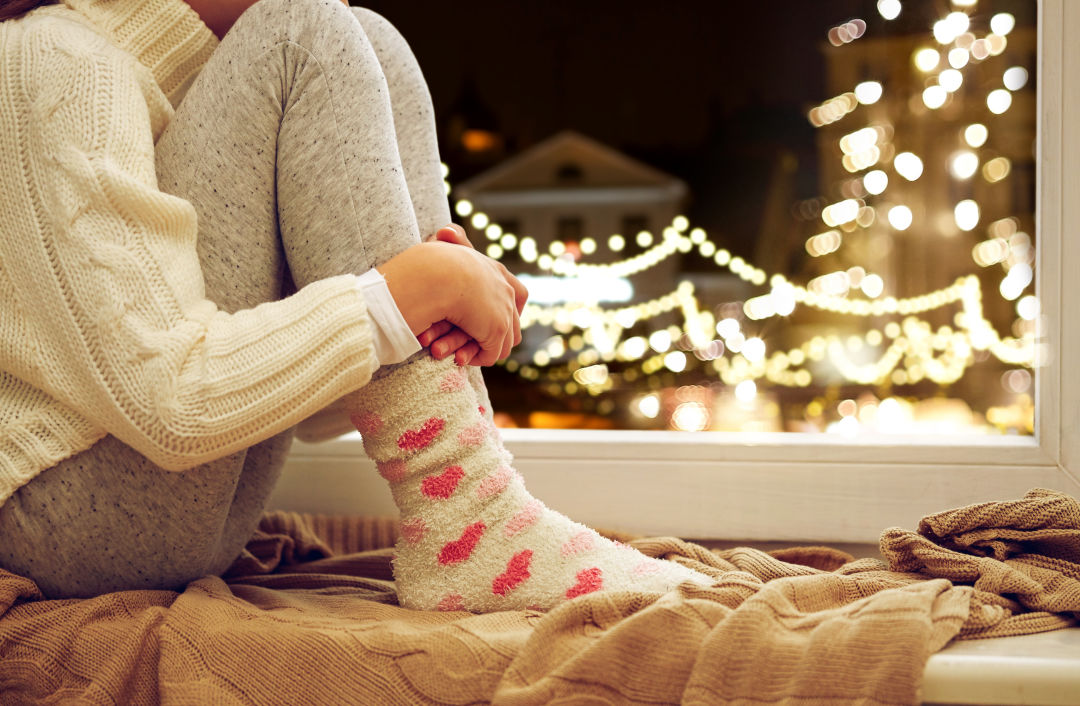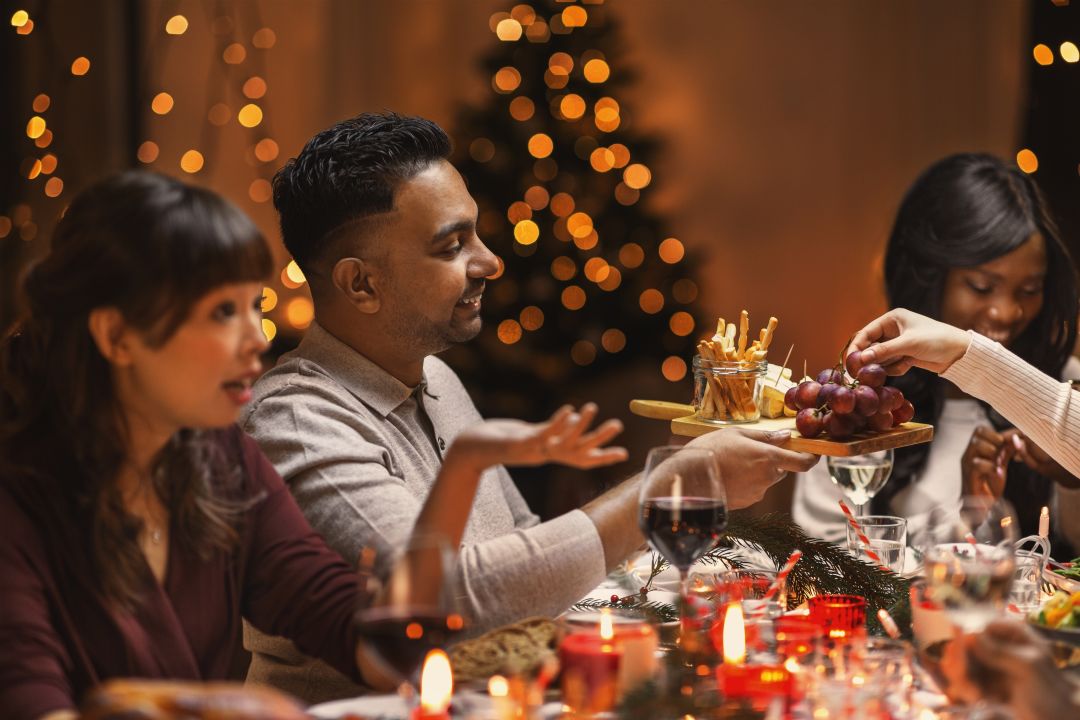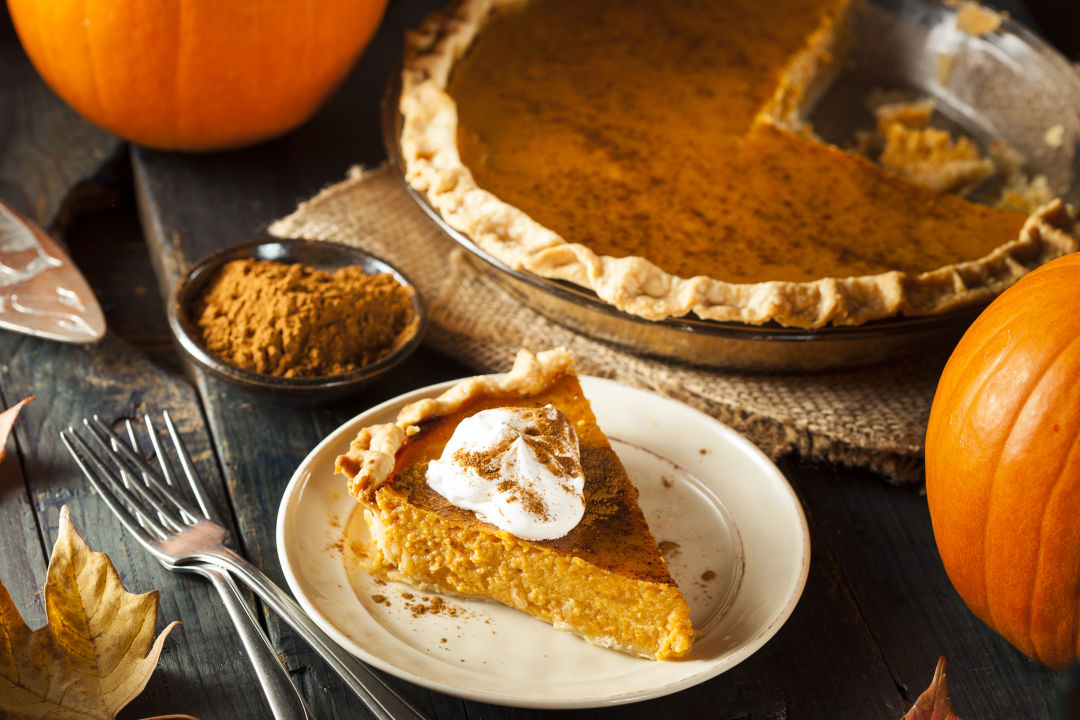The Ultimate Holiday Survival Guide

Take a deep breath, grab a candy cane and follow these tips for a stress-free holiday season.
Even though they're branded as the most wonderful time of the year, the holidays can bring out everyone’s inner Scrooge. To avoid hurling a pumpkin pie at judgmental Uncle Joe or burning out over burnt sugar cookies, follow these holiday survival tips from Dr. Andrea Blanch, a local psychologist and consultant with Here4Youth, who specializes in trauma and mental health.
So why do the holidays often lead to stress and conflict?
“We have a long history of holiday memories dating back to our childhood,” says Blanch, “and many of us remember them as a magical time.” All these happy reflections give us high expectations for the present holidays. “Our expectations are grounded in the fantasies of a child rather than the realities of adulthood,” Blanch explains. When expectations and reality don’t match up, people become stressed trying to make everything as perfect as it was in the past.
Holidays can also be stressful because they are the only time of year we see certain friends and family members. “Getting together with people we only see once a year takes us out of our comfort zone, catapulting us into a different reality than our day-to-day lives,” Blanch says. Many end up like Bridget Jones, dodging inappropriate questions about her love life at the New Year’s turkey curry buffet, or in screaming matches with relatives. Blanch adds that our skills for dealing with this alternate universe are not as well-honed as those we practice every day, making the season a petri dish for interpersonal conflict.

Planning ahead of time, rehearsing conversational responses with a friend and enlisting a table ally can help when you have a "wishbone" to pick with relatives at Thanksgiving dinner.
How can we handle conflict during the holidays?
Believe it or not, there are other options besides wishing your family would disappear Home Alone-style. According to Blanch, planning your responses to conflict ahead of time is a good strategy.
“We get into trouble when someone triggers our emotions, and we’re not prepared to keep them under control,” she says. “If you know that Uncle Joe will make a provocative political statement in the middle of having pumpkin pie, then you need to develop a safety plan to help you respond." You can even enlist a friend to play the character of Uncle Joe. Whether you change the subject to the football game, have an impromptu bathroom emergency or just smile and listen, what matters most is having a toolbox of responses ready. “You can also engage an ally at the table to help redirect the conversation,” Blanch says.
Listen compassionately.
Okay, so Auntie Trudy has spent the entire Hanukkah dinner grilling you on when you’re going to settle down and marry your boyfriend. While it’s tempting to internalize the criticism, Blanch urges everyone not to take such comments personally. “Ask yourself what happened to this person to make them so overbearing and consider what lies underneath this behavior,” she says. Instead of arguing, Blanch advises you to remember that the comments aren’t personal, but rather reflect Auntie Trudy’s worldview. “Don’t respond to personal attacks,” she says, “and in situations where you disagree, seek some small point of agreement.” Sometimes, it's as simple as agreeing with Auntie Trudy that daisies are in fact a great choice for your future bouquet. The more we listen, the more we avoid engaging in conflict.
Start the conversation.
Whether you’re 30 and sandwiched in at the kids’ table or peeling potatoes with your 90-year-old grandpa, chances are you’ll be interacting with relatives of varying generations. “Ask questions and listen,” says Blanch. “If you’re talking to someone older, inquire as to what life was like when they were your age.” With younger generations, unleash your inner Buddy the Elf. “Ask kids what they like to do best,” she adds. The goal is to keep them talking—and don’t forget to listen.

"This is not the time of year for self discipline," says Blanch. Bring on the extra pumpkin pie and your favorite comfort movie.
Image: Shutterstock
How can we practice self-care during the holidays?
“Don’t listen to the so-called experts like me,” says Blanch. “Pay attention to your body and stress levels.” Because stress feels different for everyone, Blanch believes that monitoring and recognizing stress is half the battle. “You know your own best strategies for slowing down,” she says. These can range from listening to music to going for a walk in your neighborhood. What matters is knowing what works for you.
Relax in small doses.
For many, the idea of relaxing during the holidays seems about as realistic as riding on a Thanksgiving Day parade float. “You might go to yoga class every week, but decide to skip it because you’re preparing Thanksgiving dinner for 15 people,” she says. Working in the trauma field, Blanch learned that spreading relaxation techniques out in small doses throughout the day is more effective than doing them in one chunk. If you’re a music lover, make a holiday relaxation playlist. Just listening to one song per hour is enough to calm your nervous system. Water your plants. Pet the dog. Read a magazine article—any strategy that takes a shorter time works.
Embrace your mistakes.
Remember Clark Griswold from Christmas Vacation, so determined to recreate the wonderful Christmases of his childhood that he nearly drove his family away in the process? Curating the perfect holiday can be so overwhelming that it causes tension for both the hosts and guests. “People are more concerned with being good guests than they are with you being a good host,” says Blanch. Instead of fretting over whether the wine is chilled or candle wax from the menorah is dripping on the new tablecloth, embrace your mistakes. “Making mistakes cuts the tension for everyone, reminding you that no one cares if you screw up, and helps guests relax,” Blanch adds.
Say yes.
According to Blanch, most hosts turn down guests’ offers to help out of social etiquette norms, yet giving them ways to lend a hand is a secret weapon for entertaining. “For the people who feel awkward, don’t know anyone at the party or behave like Uncle Joe with his self-esteem issues, chores break down barriers and make guests useful,” says Blanch. Putting guests to work gives them an opportunity to contribute and feel good about themselves, with the added benefit of decreasing tasks for the host.
Indulge yourself.
Experts always recommend keeping up healthy habits during the holidays, but Blanch suggests giving them up. “The holidays are stressful,” she says, “so have the extra cookie and cut yourself some slack.” She adds that one crab cake too many won't ruin your diet and that now is not the time for discipline. If you need to watch Nancy Meyers' romantic comedy The Holiday on repeat and escape to Rosehill Cottage, no one is judging you.
It's not cold outside.
“For heaven’s sake, get outside; this is Florida and it’s beautiful out there,” says Blanch. She’s observed that most people at parties tend to stay inside, where trouble brews. “When people argue, they dig in their heels, tense up and won’t move,” she adds, “but being outside breaks up the negative energy.” From her professional perspective, it’s hard to be negative if you’re wandering around in the sunshine. Maybe all the Grinch, Uncle Joe and Scrooge need is some good old vitamin D.
Andrea Blanch is a consultant with Here4Youth, a mental health initiative for families and young adults.


